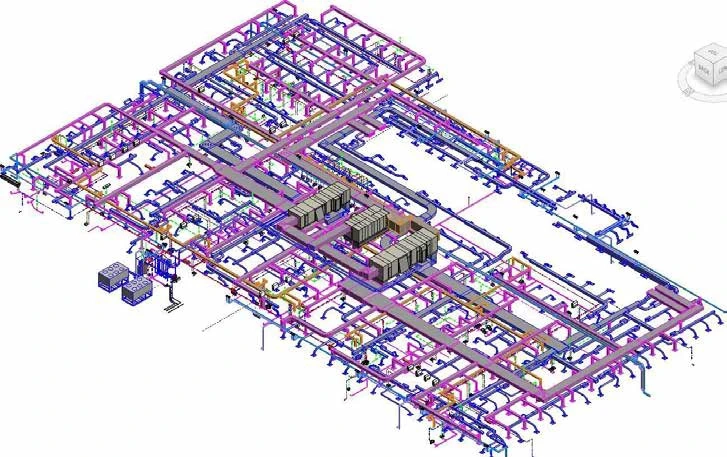In the realm of building design and construction, MEP (Mechanical, Electrical, and Plumbing) services play a crucial role in ensuring the functionality, safety, and sustainability of structures. From heating and cooling systems to electrical wiring and plumbing networks, MEP services encompass a wide range of essential components that are integral to the overall performance of buildings. In this blog, we will explore the significance of MEP services, their impact on building design and construction, and the key considerations involved in their implementation.
Understanding MEP Services
MEP services encompass the mechanical, electrical, and plumbing systems that are essential for the operation of buildings. Mechanical systems include heating, ventilation, and air conditioning (HVAC), as well as fire protection and building automation systems. Electrical systems encompass power distribution, lighting, and communication networks. Plumbing systems include water supply, drainage, and wastewater management. Together, these systems ensure the comfort, safety, and functionality of buildings, providing essential services for occupants and supporting the activities conducted within.
The Importance of Integration
Integration is a key principle in MEP services, as the various systems must work together seamlessly to achieve optimal performance. During the design phase, MEP engineers collaborate closely with architects and structural engineers to ensure that mechanical, electrical, and plumbing systems are integrated effectively into the overall building design. By considering factors such as spatial constraints, energy efficiency, and occupant comfort, engineers can develop integrated MEP solutions that meet the needs of building occupants while optimizing resource utilization and minimizing environmental impact.
Enhancing Energy Efficiency
Energy efficiency is a critical consideration in building design and construction, and MEP services play a significant role in achieving sustainability goals. Through the use of energy-efficient HVAC systems, lighting technologies, and renewable energy sources, MEP engineers can reduce energy consumption and lower operating costs for building owners. By implementing sustainable design strategies such as passive heating and cooling, daylighting, and water conservation measures, MEP services can contribute to the creation of buildings that are environmentally responsible and resource-efficient.
Ensuring Occupant Comfort and Safety
MEP services are essential for ensuring occupant comfort and safety within buildings. HVAC systems regulate indoor temperature and humidity levels, providing a comfortable environment for occupants year-round. Fire protection systems, including fire alarms, sprinklers, and smoke control systems, help to safeguard occupants in the event of a fire emergency. Electrical systems provide power for lighting, appliances, and electronic devices, while plumbing systems deliver clean water for drinking, cooking, and sanitation. By maintaining the functionality and reliability of these systems, MEP services contribute to the overall well-being and satisfaction of building occupants.
Challenges and Considerations
While MEP services offer numerous benefits, they also present challenges and considerations that must be addressed during the design and construction process. These may include technical complexities, budget constraints, regulatory requirements, and coordination issues between different trades. Effective communication and collaboration among project stakeholders are essential for overcoming these challenges and ensuring the successful implementation of MEP services.
Conclusion
MEP services play a vital role in building design and construction, providing essential systems and infrastructure that support the functionality, safety, and sustainability of structures. ENGISOFT ENGINEERING - BIM Staffing & BIM Services From heating and cooling to electrical power and plumbing, MEP services encompass a wide range of components that are integral to the built environment. By integrating these systems effectively, enhancing energy efficiency, ensuring occupant comfort and safety, and addressing challenges and considerations, MEP services contribute to the creation of buildings that are functional, resilient, and environmentally responsible.


